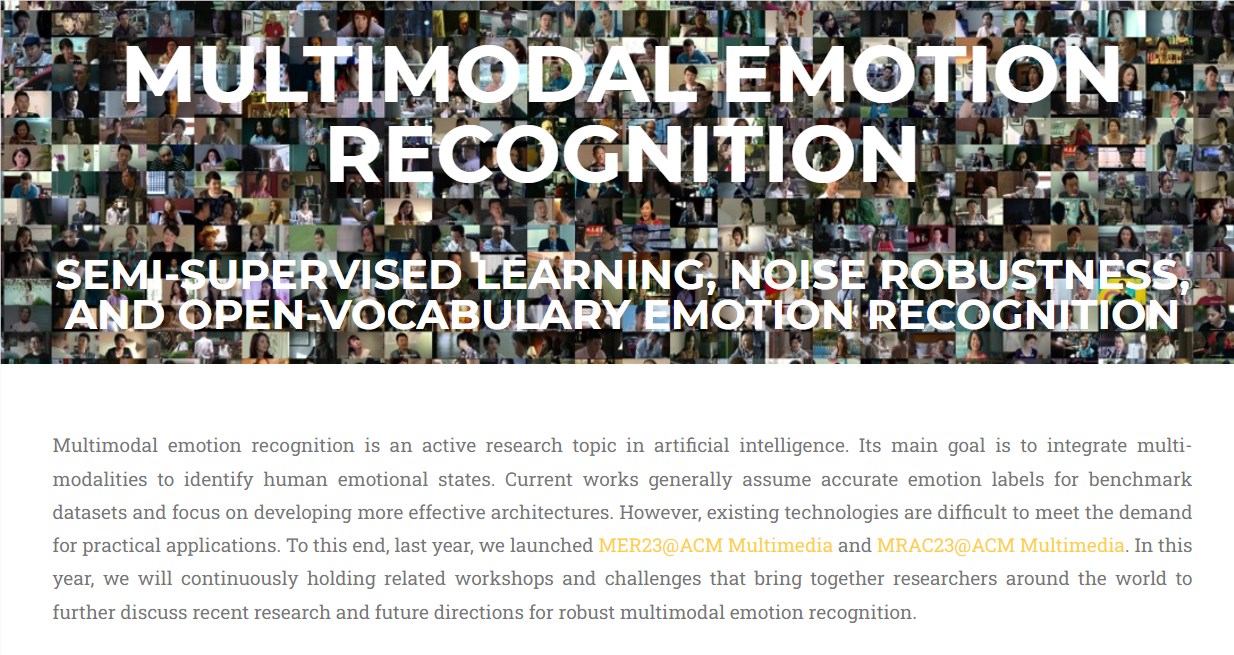The second Multi-modal Emotion Recognition Challenge (MER24) came to a successful conclusion, and the Soul App voice technology team won the championship with its excellent performance on the Semi track. The track is known for its high difficulty and fierce competition, requiring participating teams to train emotion recognition models with high generalization capabilities when data is scarce. The success of the Soul team not only demonstrates its profound accumulation in multi-modal data understanding and emotion recognition algorithms, but also provides new possibilities for AI's emotional interaction in the social field, marking the application of AI emotion recognition technology to real people. The application in computer interaction scenarios has entered a new stage.
Artificial intelligence has made significant progress in understanding human emotions. At the beginning of this month, the second Multi-modal Emotion Recognition Challenge (MER24) successfully concluded. This high-profile competition was jointly sponsored by a number of internationally renowned scholars and aimed to promote the application of AI emotion recognition technology in real human-computer interaction scenarios. .
The MER24 Challenge has three tracks, of which the Semi track has attracted much attention due to its high difficulty and fierce competition. The Semi track requires participating teams to use a small amount of labeled and a large amount of unlabeled video data to train the model, and evaluate the performance and generalization ability of the model on the unlabeled data set. Soul App's voice technology team won first place in this track with its innovative technical solutions.

Competition official website: https://zeroqiaoba.github.io/MER2024-website/#organization
The success of the Soul team is due to its deep accumulation and innovation in multi-modal data understanding, emotion recognition algorithms, model optimization platform tools, internal workflow construction, etc., as well as the efficient collaboration of the technical team. Facing the challenge of data scarcity, the Soul team has adopted a variety of strategies, including improving semi-supervised learning technology, using pre-trained models to extract multi-modal features, proposing effective feature fusion methods, and innovative models for video and text modalities.
The Soul team's technical solution not only improves the accuracy of emotion recognition, but also better distinguishes easily confused emotional boundaries. This achievement is a concentrated expression of Soul's deep cultivation of AI large model technology in the social field, especially its multi-modal emotional interaction capabilities.
There is a growing demand for emotional AI in the social field. By building an AI with emotional capabilities, Soul has achieved the transformation from a task performer to a companion who meets human emotional needs. Soul's self-developed AI Goudan, Werewolf Phantom game, Different World Response application, etc., all demonstrate Soul's integration capabilities in personification, knowledge, multi-modality, time perception and other aspects, providing users with rich and warm experiences. AI interactive experience.
2024 is regarded as the first year of AIGC application. Domestic companies such as Soul have achieved remarkable results in the direction of AI social networking through the accumulation of self-developed technology. Soul has incubated a series of products based on self-developed language and speech large models, and has accumulated rich innovative technologies and practical experience in the process of improving the emotional interaction experience between AI and users.
In the future, platforms like Soul that insist on technological and product innovation will continue to create value for users and achieve more lasting and diversified business value based on the formation of a prosperous content and community ecology.
The breakthrough progress made by the Soul team in the MER24 challenge heralds the broad prospects of AI emotion recognition technology in the social field, and also provides new directions and motivation for more natural and emotional interactions between AI and humans in the future. We look forward to the emergence of more innovative technologies in the future to promote the continued progress of AI in the field of affective computing.